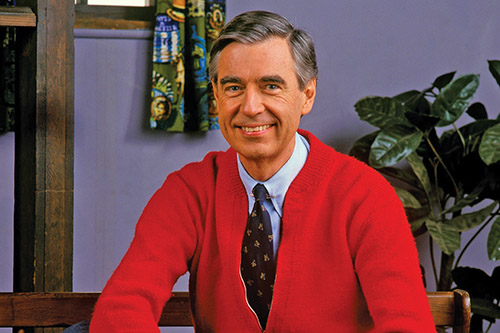
Not sure if it was a coincidence or pure hashgacha pratit (divine providence) that we chose to see the documentary entitled “Won’t You Be My Neighbor?,” about the life of Fred Rogers, the night before we attended the funeral of our niece Shelly Zabrowsky. Shelly was the daughter of Mordechai’s late sister Evelyn. She passed away after many years of recurrent bouts with cancer.
The theme of the documentary centered on the importance of letting go and not holding grudges. Mr. Rogers’ once met a writer who never was able to get over the fact that his father had deserted him and his sister while their mother was dying. This man walked around with anger and a lack of faith in humanity for many years. It was not until he received an assignment to interview Fred Rogers as a “hero” figure for a future Esquire magazine edition that he found himself challenged by Mr. Rogers to search within himself to come to terms with what had happened in the past and move on.
Shelly was 14 years old when her mother passed away. Her brother, Solomon, was 7. They were two young children lost without their mother. Shelley’s father remarried after a number of years and was able to provide for them, together with his new wife and their blended family, a secure, stable home life. Due to reasons that we will never know, Mordechai’s parents had little to do with their son-in-law and, in turn, their grandchildren did not get to see as much of their grandparents as they deserved.
We, as a young couple when this drama was taking place, were living in our own little Canadian world and had little understanding of what was going on, but it resulted in our practically never seeing our niece and nephew.
Just today we learned of the special attributes that Shelly had. She had tons of friends. She was kind to everyone. As a nurse in the hospital, she sat for hours listening to and caring for many who had no one to be at their side. We met people who were in her bowling league, who worked with her, who constantly reiterated what a special soul she was. We also met for the first time her wife, Alice. Alice spoke of how Shelly had made her a better person. She talked of her compassion for others sometimes rising to ridiculous degrees. She worried about the animals out in the cold in the countryside where they lived. She would purchase bags and bags of corn to put outside in the winter, likely for the deer. A man that she happened to sit next to at a Mets game told of her kindness and the friendship that they developed over the years.
And here we were, aunt and uncle who knew nothing about our niece. How could that have happened? It was never because we did not want to be involved with her. It was caused by the ridiculous family dynamics that came into play. Grudges that were held for no reason. Even if there were reasons, is there not a time when people must own up to their own stupidity? We were refreshed to hear such charming and wonderful things about our niece that we never would have known had she not died. How absolutely sad is that? Her own father apparently broke ties with her at the age of 18 when she told him that she was a lesbian. What did he accomplish by doing such a thing? Where is the sanity in the world when it comes to things that we have the ability to control and we let pass us by?
Our children hardly knew their cousin. We, as aunt and uncle, had no relationship with our niece because of the downright stupidity of those who came before us. We are so sorry that we missed the opportunity to be a true aunt and uncle to Shelly and Solomon (even though she and her uncle were only 10 years apart). This should be a lesson for everyone to not allow the mistakes of their parents and grandparents to interfere with what they truly believe is right. Yes, it is true that we can choose our friends and not our family, but perhaps it is time to look more closely at our family and choose them first. They may need us without our realizing it. In the case of our niece, we wish that we could now tell her how proud we are of who she was. We missed the opportunity to tell her ourselves, but hopefully from this mistake we can share with others and with our own family the importance of accepting family no matter what.
Mr. Rogers would have had a lot to say today. We hope that we have done him proud.
By Rabbi Mordechai and Nina Glick










